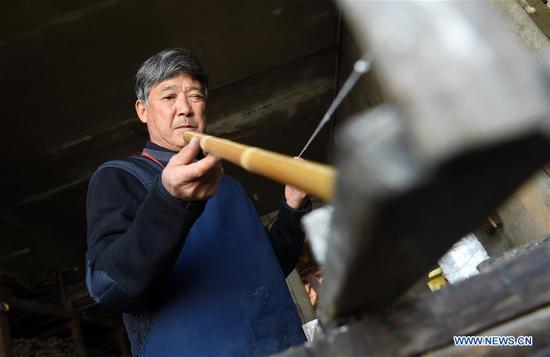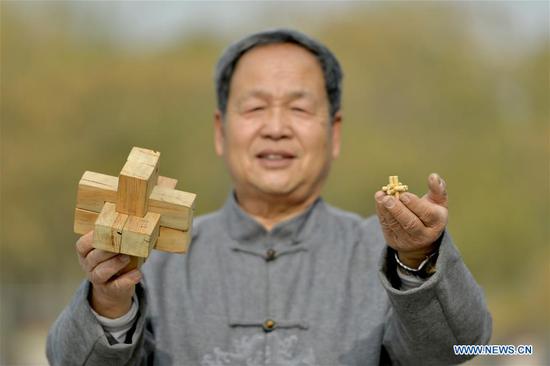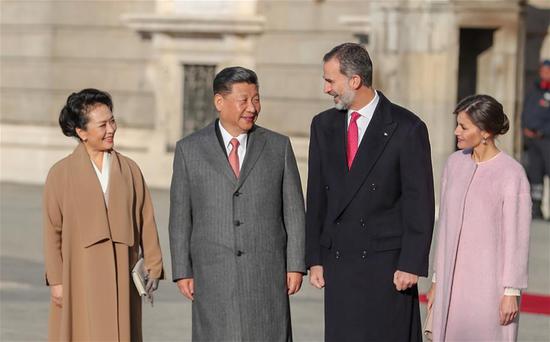
In 2013, at Handan Intermediate People's Court in Hebei, Wang Shujin confessed to the crimes that led to Nie's execution. (Photo/Xinhua)
Firm but fair
In Zhou's view, a good judgment consists of a flawless conviction and an appropriate punishment: "In other words, not heavier, but better."
For example, illegal fundraisers could be sentenced to death in the past, but now the heaviest punishment they face is life imprisonment.
"Spending their lives behind bars is enough for such offenders, and they have lost the opportunity to raise funds illegally again so I think the aim of the punishment is effective," Zhou said, dismissing concerns voiced by some legal professionals who believe that lenient punishments pose a potential risk to public security.
Mo said the Work Report of the Supreme People's Court in 2008 noted that the number of serious offenses, such as intentional homicide and arson, declined noticeably in 2007, the year the court became the final arbiter on executions.
She applauded the judicial system's adherence to the principles of "innocent until proved guilty" and "punishment stipulated by law" because they also contribute to the prudent use of the death penalty.
Hu, from the top court, said highlighting the two principles encourages stricter standards in the examination and judgment of evidence in cases where the death penalty could be imposed, and their adoption across the board plays a role in preventing miscarriages of justice.
"It's pleasing to see quality highlighted in the handling of criminal cases rather than speed," he said, adding that it demonstrates great progress in the rule of law.
Xu, the lawyer in Beijing, said the use of lethal injection for executions is also a sign of progress. "It is more humane compared with execution by firing squad," he added.
Future changes
All the experts said the control and prudent application of the death penalty will be strengthened further in future, with fewer nonviolent or financial crimes coming under its remit.
"However, the pace of change may slow," Zhou said, adding that it is currently not practical to abolish the death penalty for all crimes, even though some European countries have already done so.
Xu said: "Complete abolition would require both the country and the people's legal awareness to become more refined, which will take time. There is still a long way to go."
As an example, he pointed out that the idea of "a life for a life" is still deeply rooted in many people's minds, especially with regard to violent offenses such as rape or intentional homicide, so perceptions would have to develop before far-reaching changes could be enforced.


















































